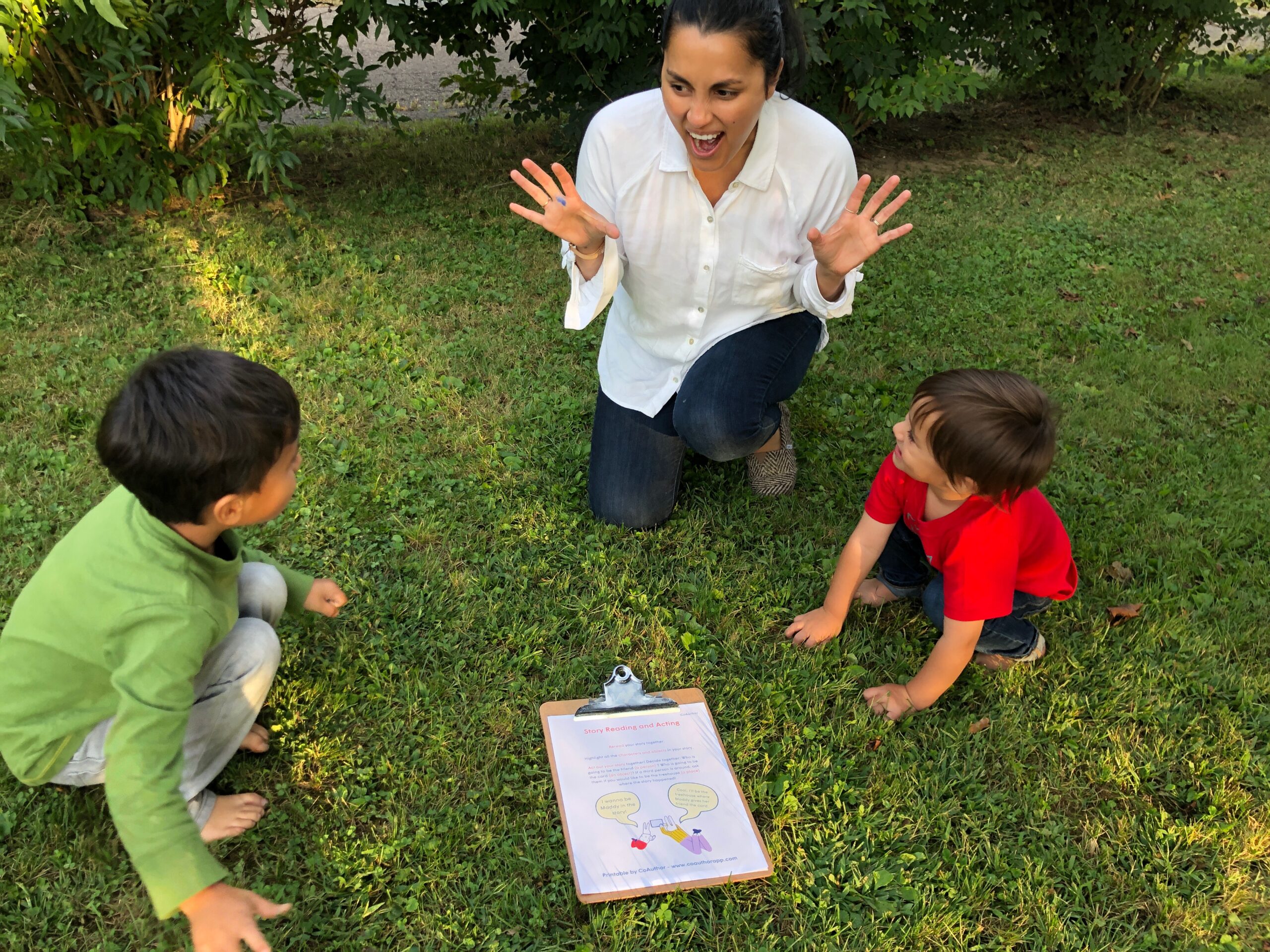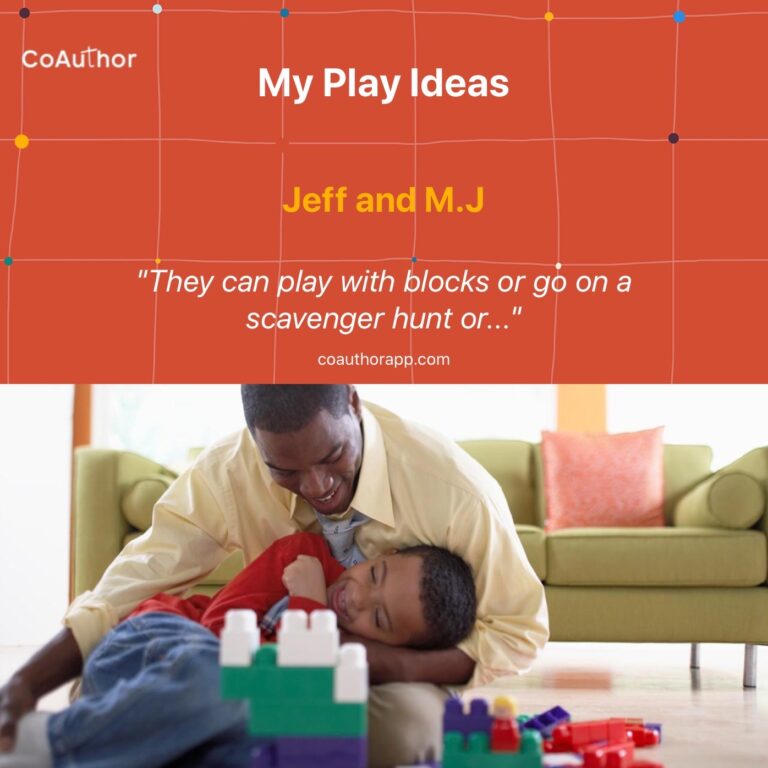By Marwa Abdelfattah, founder of CoAuthor
With the Covid-19 situation, our children are relying on us more and more as play partners. And sometimes, we don’t want to play for different reasons…
“I want to honor his interests and genuinely be involved in this play, but I find his play ideas so boring! Is it okay for me to suggest different play ideas?” shares A. in a private message.
You are not alone if you are less than excited these days about your child’s play invites.
Before launching into how to work around this issue, here are a few things to know about children and play:
1- Independent play is great! Children benefit a lot when they play alone; it increases their focus, resilience, calmness, and creativity!
2- Playing alone is related to a skill. Some children are more able to play alone than others either by virtue of their executive functioning development or how they are wired. Some children on the autism spectrum, for example, enjoy playing alone for long periods of time because it feels safe for them.
3- Play is 100% the domain of the child. This is what they are intended to do. The child’s biggest achievements happen during play. So while I want to empathize with your needs for genuine engagement, I’d always encourage you to limit as much as you can proposing play ideas to the Chief Executive Officers of Play! It’s up to the child to invite us to play and it’s also up to them to decide what our role will be in their play. And nope this isn’t raising a “bossy” child, this is developing your child’s social and emotional skills.
“How does that help me feel any better?” You may wonder…
I hear ya! Here are suggestions to work around your frustration:
1- Acknowledge your frustration and honor your needs. It’s okay to occasionally gently decline your child’s play invites. “I love that you want to involve me in your play. I’m down for playing this game with you tomorrow (or whenever you can), let me write that down right now so we can both remember to play mommy and baby (tomorrow)” Write it down in front of the child on a post-it and hang it somewhere visible and follow through with your promise.
2- Quality trumps quantity: when you get to it, give it your undivided attention! This means putting your phone away and being fully present even if it’s just for 10 minutes. “I’m going to turn off my phone now so I can really focus on playing with you.”
3- Brainstorm play ideas with your child: write down your child’s play ideas (who knows maybe you will like some of their new ideas!), you can do this using our CoAuthor app prompts under Wonder With Me.
4- Make a schedule with your child and label their independent playtime as Free-Choice time. This is an opportunity to help the child reframe: “this is not abandonment time, this is time to create anything that I like, love and want! I own that time!” A child-friendly schedule has very few transitions and takes into account the child’s needs. It may look something like this: Breakfast – Teeth Brushing – Together activity – Snack – Free Choice time – Lunch – Together activity – Snack – Free Choice time – Dinner – Bedtime prep.
5- Set up a simple creative corner with your child. This is an important step if you want the Free-Choice/independent playtime to work well. The environment is an interlocutor that keeps the child engaged. You can make it simple.
6- Instead of actually playing, offer to listen to their play and make your listening visible: in the fifties, educator Vivian Paley used to sit next to children and invite them: “tell me a story”. She would then write down children’s stories in front of them. Children feel so respected and visible when we write down their words in from of them. They see this documentation as an act of love. There are also so many literacy learning benefits to this method. To write stories with your child à la Paley, check out Tell Me A Story.
7- Act out the stories they tell you! This is so much fun, I promise you, you will like it! Think of the story manuscript in #6 as a play idea for next time. You can do it this way.
8- Learn how to wonder and how to be amazed! This is a life-changing skill and I’m sharing it with you with love! After acknowledging your frustration and maybe exploring it, consider making a conscious decision to see the beauty and wonder in your child’s play ideas, take pleasure in them, and share them with other children and adults. Share your #3 with us using the hashtag #MyPlayIdeas
Finally, I’d like to leave you with this quote by Loris Malaguzzi to meditate on “Children expect from adults the ability to offer joy.“




